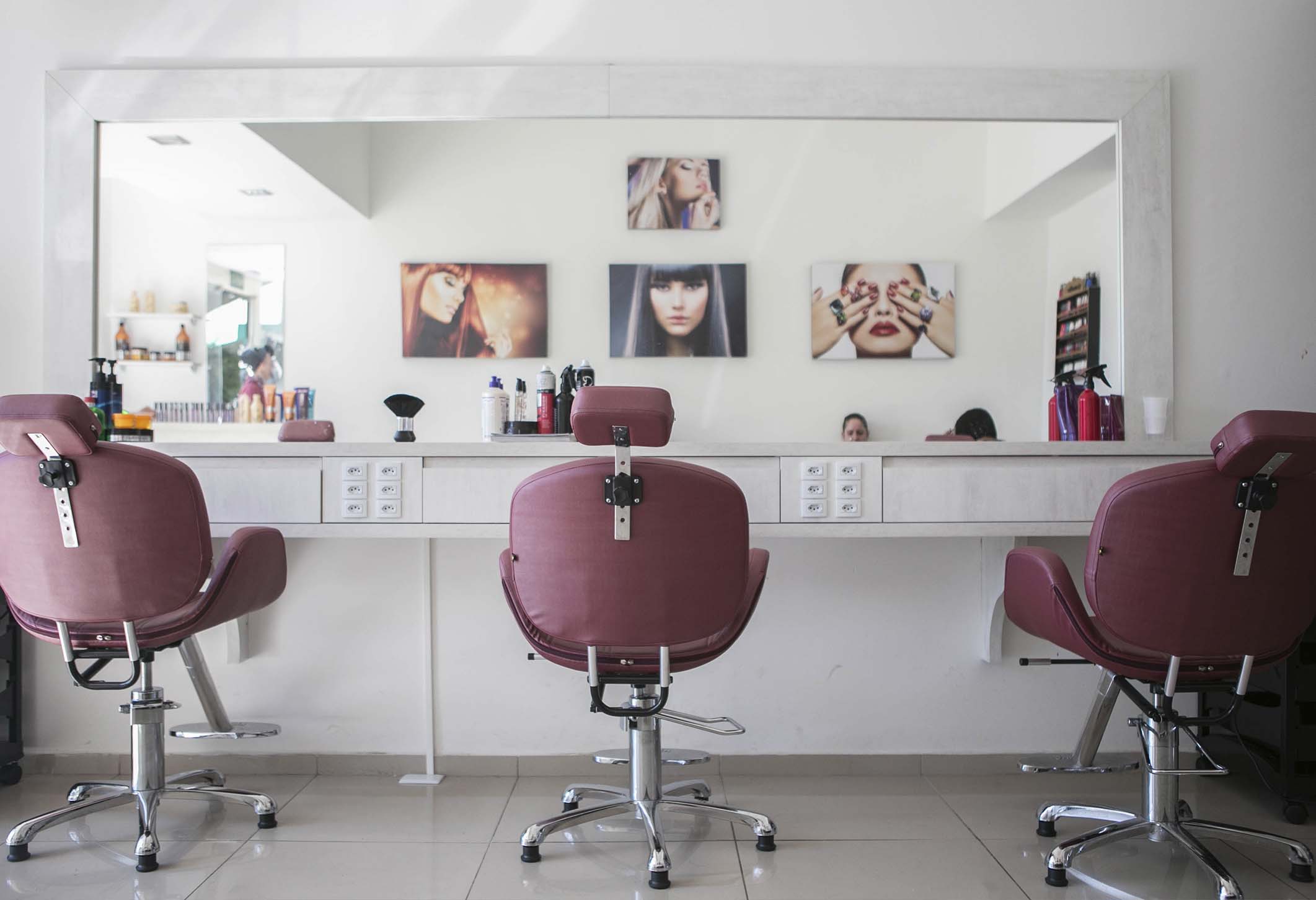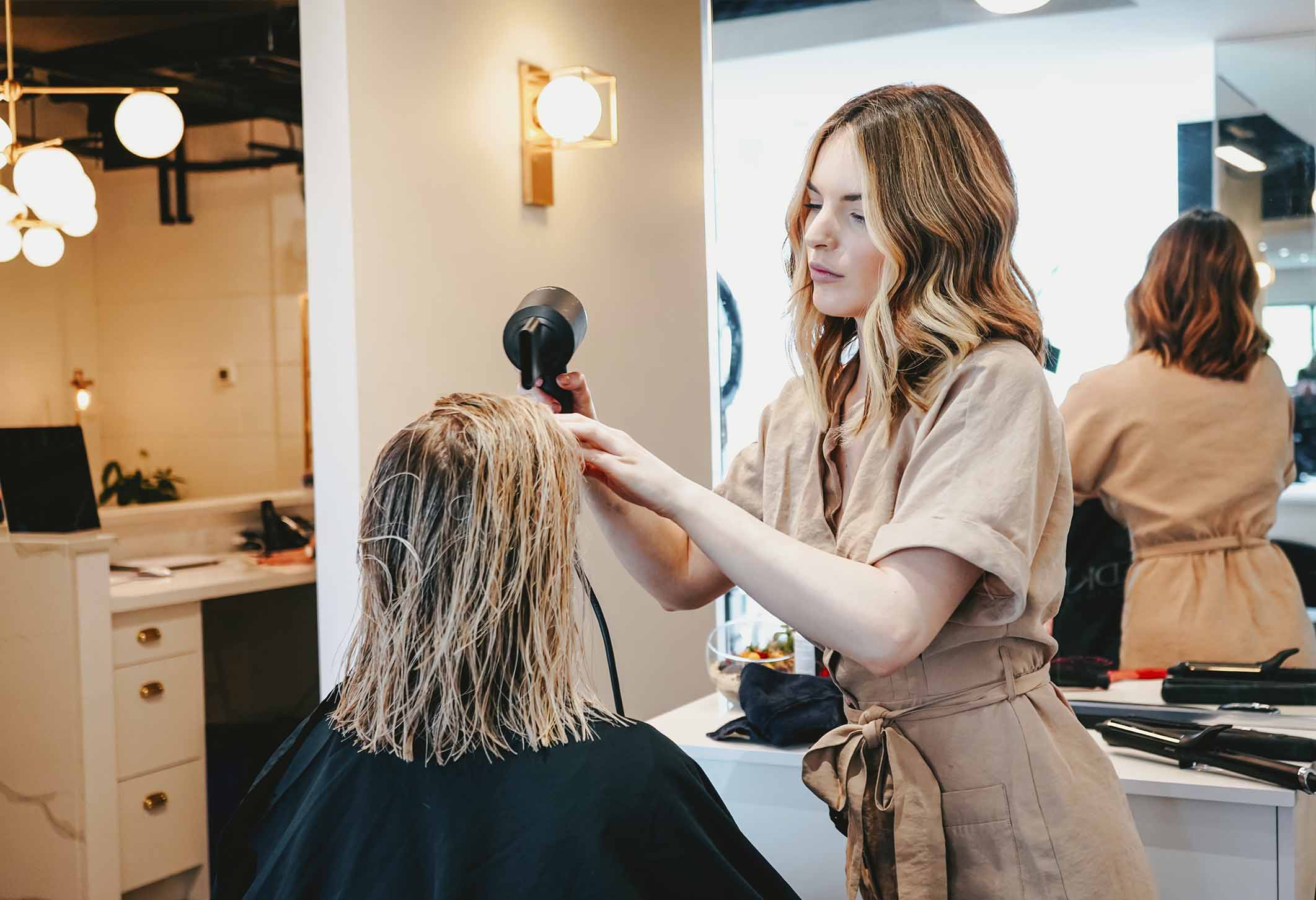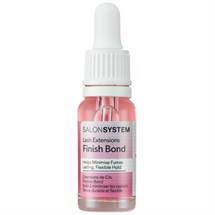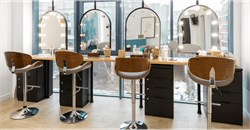Menu

Mobile or salon? Which is the best for your new business?
With the new year comes resolutions and thoughts of changing career, and January is a great time to consider your options. Here, we look at what to think about when launching your new hair or beauty business. Working for yourself gives you options, but which path is better – working in a salon where you get guaranteed customers, or going mobile where you have more freedom? We spoke with Salon Gold for the inside scoop.
What is it like to work from a hair and beauty salon?
If you’re in the first few years of your career path, there are some obvious benefits to working out of an existing salon – you have a base, you’ll learn a lot if you’ve just qualified and you’ll have a more guaranteed income. Simon Shaw is co-founder and past director of international award-winning salon group Haringtons. He’s spent 44 years in the industry and over 35 years creating salon culture, focusing on developing people and providing top customer service. A source of creative leadership with a proven talent coaching both teams and individuals to success, he passionately believes that people are key to every successful business.
“Working from a good salon can provide a level of security, which is ideal if you are the type of person who likes certainty,” he says. “Salons provide ongoing training on products, trends, and techniques. Salons can provide an appraisal process that can help with career progression, giving ongoing feedback on your particular strengths and weaknesses. It will help with providing you some new clients, and you will also be able to learn off more experienced team members and ask their advice.”

What about starting a salon business?
Setting up your own salon business is more costly than stepping into an existing salon. However, if you’re an experienced stylist or beautician, it will mean you’re the boss, and if you’re considering this you’ve probably done a lot of research and a business plan to ensure your idea is viable.
Shaw says: “When starting your own business, you need to consider location, finance, staff, suppliers, social media, your company’s brand and what differentiates you from your competition. Opening a business is a massive learning curve, so prepare as much as possible, start with a solid business plan and get help with this if needs be. One of the biggest mistakes people make when starting a service business is being the busiest stylist or beautician. While this sounds like a positive situation, it is vital to allow yourself some time to run the business. The old adage ‘work on your business, not just in it’ is very sound advice.”
Jen Davies, Head of New Business at Salon Gold, advises: “Due to the high-risk nature of some hair and beauty treatments, it’s always advisable to choose a specialist insurer (like Salon Gold, who have insured the sector for more than 35 years) who will understand your business. A generic shop type policy will just not do. A specialist policy provides peace of mind should the worst happen.
“Make sure you are covered for the property (building, contents and stock) and also the liability risks your business may face, such as injury to the public and employers’ liability to protect staff. You also need to be covered for any treatments you undertake. Salon insurance cover is typically more expensive than freelance insurance, so some salon owners opt for freelance cover instead. However, this will not provide the right insurance. A freelance package will not cover any public liability arising out of somebody being injured in the salon. You will only get cover for the treatments undertaken.”

What is it like to work in mobile beauty and mobile hair?
Many people are attracted to the benefits of working for yourself and the additional freedom you’ll get from being mobile. It means less set-up costs for your business, but it may also be more difficult to build a client base. Shaw explains: “Once people build a clientele, they often think of going mobile. On the positive side of things, it’s more flexible as you work the hours to suit you, and you don’t have to rent a unit so there’s fewer running costs. The money you charge comes directly to you, and you probably won’t need to register for VAT.
“The downside is that although in theory you can dictate your hours, in reality clients will probably want your services at evenings and weekends, and they’ll expect to pay less than for a salon service. Unless you look after several members of the family, you can only see one person in each location and have to factor in travel time and probably parking, whereas in the salon you can have a full column of clients back to back as well as a junior shampooing for you and potentially an assistant.
“As a mobile worker, you’re responsible for your own accounting, paying your tax, buying your products and marketing yourself, plus it’ll be up to you to make sure you stay up to speed on training. If you’re visiting other people’s spaces, you have to take all your equipment with you, which will probably necessitate car ownership, and their space may not be ideal.”
Davies adds: “For mobile hairdressers and beauty therapists, you may not need to give so much consideration to the property covers as you are not trading from a premises, but public liability and treatment risk cover is still very important.”

How to start a salon in your home
“Starting a home salon will require you to have a dedicated space, either by extension or converting an existing space,” says Shaw. “Check with your local council as to which planning permissions this requires. Make it as professional and as luxurious as possible – you don’t want your clients to feel that they’re missing out by coming to a home salon. Think about the services you intend to offer – appropriate equipment to provide them is essential, so if it’s hair then a good adjustable chair, a cutting stool, quality hairdryers and hot tools will all be worth the investment. Remember, it’s ‘buy cheap, pay twice’ when it comes to products, so think about a brand that can offer you ongoing support, with training, promotions and maybe workshops.”
Davies advises: “If you’re trading from home, you need to let your home insurer know to make sure they’re happy with your home being used for business purposes. You also need to have public liability cover for any visitors to your home. If this isn’t available from your home insurer, it can be added to the Salon Gold freelance policy for an additional premium.”
What qualifications should you have?
Shaw tells us: “While technically you don’t currently need any qualifications to open a hair or beauty salon, in my opinion you should not consider opening unless you have completed an apprenticeship or a 2-year college course, ideally level 3 NVQ or above. Ongoing training is also vital; if you want to be in business for a long time, clients will expect you to update your knowledge regularly. Make sure you get yourself fully insured.”
And Davies agrees, adding: “Make sure you have insurance cover for the treatments you carry out. This is especially important with regards to qualifications – all training courses need to be accredited by a UK-recognised body (as Capital courses are). Also beware of solely online courses as these are not approved by all insurers. Check with your insurer before undertaking any new courses to make sure they’ll be accepted before incurring any costs.”
Whatever you decide, good luck in your venture and check out Capital magazine and the Salon Gold blog for regular inspiration!
Freelance Focus
Freelance Focus, is a one stop resource for anyone working as a freelancer or thinking of going freelance in the hair & beauty industry, which includes a FREE downloadable guide filled with advice, useful insights, experiences and tips (from experienced freelancers) to help you understand the steps needed to make the right choices for you.
New & Trending
OFFER
NEW
Delivery
Collection
Please login to your account to check stock in your local store.
SPECIAL PRICE
NEW
Delivery
Collection
Please login to your account to check stock in your local store.
OFFER
NEW
Delivery
Collection
Please login to your account to check stock in your local store.
SAVE 20%
OFFER
NEW
Delivery
Collection
Please login to your account to check stock in your local store.
SPECIAL PRICE
OFFER
NEW
Delivery
Collection
Please login to your account to check stock in your local store.
SPECIAL PRICE
OFFER
NEW
Delivery
Collection
Please login to your account to check stock in your local store.
SPECIAL PRICE
NEW
NEW
Delivery
Collection
Please login to your account to check stock in your local store.
NEW
Delivery
Collection
Please login to your account to check stock in your local store.
NEW
Back to Posts
Tags
- 2024
- acne
- apps
- autumn
- awards
- balayage
- beauty
- beautypro
- blonde
- bridal
- brows
- business
- capital & me
- career
- celebrities
- christmas
- chrome
- clean
- collection
- colour
- covid-19
- curls
- facial
- fashion
- festival
- finance
- freelance
- gel
- gellux
- get the look
- glam
- hair
- hairdressing
- halloween
- how to
- hygiene
- indola
- inspiration
- interview
- keratin
- keune
- l’oréal
- lashes
- lip art
- lockdown
- l'oreal
- loyalty
- macadamia
- make up
- manicure
- marketing
- mens
- mental health
- mobile
- nail art
- nail inspiration
- nail trends
- nails
- new years
- nxt
- olaplex
- opi
- party
- pulp riot
- redken
- retail
- salon
- salon management
- salon system
- schwarzkopf
- self-employed
- shampoo
- skills
- skincare
- social media
- spa
- spring
- step by step
- summer
- tanning
- the met gala
- tigi
- tiktok
- tips & advice
- toning
- training
- trends
- trevor sorbie
- tutorial
- updo
- valentines
- volume
- wahl
- waxing
- wella
- wellbeing
- winter
Latest Posts
- Butter Yellow Is the Colour of the Season
- Vitamino Color Spectrum - Lock In Your Day 1 Colour Vibrancy For Up To 100 Days*
- Week in My Shoes: A Day in the Life of Craig Purves
- Embracing Grey: Expert Tips on Perfecting the Grey Hair Blend Trend
- How to Raise Beauty Prices Without Losing Clients
- Billie Eilish’s Jellyfish Haircut: The Trend Taking Over Salons
- Increase Your Profit - Adding Shinefinity Top Glaze to Every Look
- Top Hair and Beauty Moments from This Year’s Oscars!
- What is Lived-in Blonde and how do I create this for my clients in salon?
- Who Made Waves on the Red Carpet at the Grammys?
Related Posts
How to Raise Beauty Prices Without Losing Clients
Discover why increasing your prices is essential and how to approach it without losing the trust of your clients.
Prioritising your mental health
Going freelance means you’re in charge of your day and get to plan things exactly as you choose. While you might be working alone, you should never feel alone; read on for our tips on keeping your mental state healthy and balanced.
Helpful apps and online services to stay organised
While starting your own business can feel like an endless list of tasks there is so much you can do via your phone and a variety of apps.
The power of social media
When it comes to being a hair or beauty pro – freelance or salon-based – social media offers your clients a window into your creations, how you work and how popular you are.
How to set up your at-home salon
There are various ways you can go freelance; while some hair and beauty pros prefer to rent a chair or space in an existing salon, others love the freedom and flexibility of creating their own at-home workspace.
How to price your services as a freelancer
Deciding on your costs can be one of those super difficult decisions that you’d rather not deal with. However, it is an important step, so make sure you do your research. Here are some tips to help make the process that little bit less painful.
Setting up your business
There are so many reasons for you to consider going freelance but what does it really entail when it comes to the paperwork side of things? Here we share our top tips to get you started.
Managing Your Finances as a Freelancer in 2023
More and more people in the hair and beauty industry are going freelance and one of the keys to sustainable success is knowing what’s happening with and how to manage your finances. Here we break down our top tips to get your started.



























